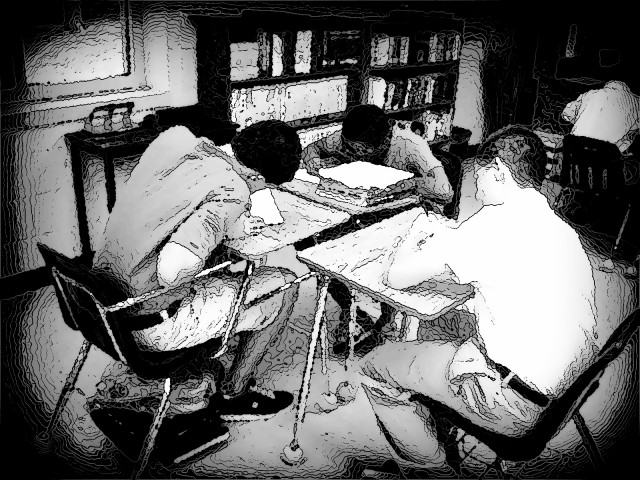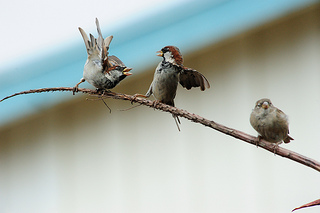We woke up to rain today. “We probably won’t be going for soccer,” I think as I poured my first cup of coffee. And the thought didn’t break my heart. Still, knowing the Girl had the second game of the day, I decided to drive over to the field, only four or five miles from out house, to see if there were indeed games. I’d heard somewhere that the general rule for determining whether or not to play a soccer game is if the ball bounces when dropped from the waist. If it bounces, the game begins. But I wasn’t sure what it would be like for four- and five-year-olds. I arrived at the field in a drizzle to find everyone playing as if nothing were happening. Still, the Girl has a way of getting a nasty cough very easily, so K and I decided it would be best not to go.
We were fairly certain the Girl would be a little disappointed. I saw the patch of dry pavement on the road and thought L would surely see that and certainly use that as justification. “See? It’s drying.” And so I was a little surprised when the reaction to “Sweetie, we’re not going to be able to go play soccer today” was “Yippeee!”
We ended up staying home most of the morning, with Nana and Papa coming for a visit and then L going to spend the afternoon at their place — after a math lesson in the kitchen.
For E, there were very few changes in the routine. Eating, giggling, pooping, sleeping. Repeat.
After some weeks, such a Saturday is just fine.

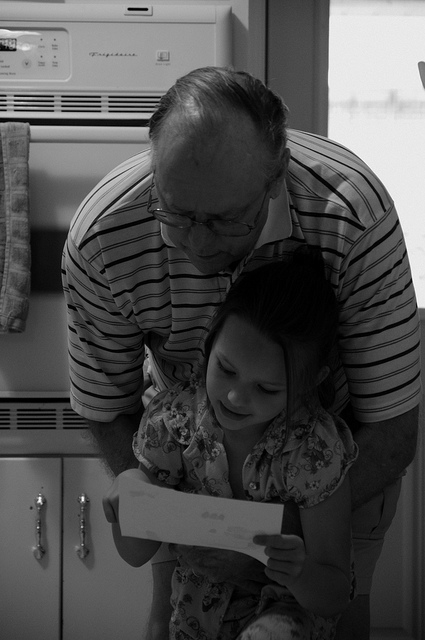

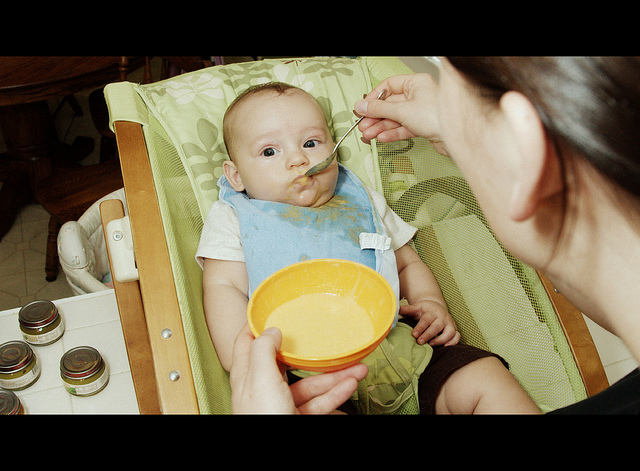
 As a teacher, I see all kinds of creative use of punctuation. Some of it makes me smile at its novelty; some of it makes me groan. Each punctuation mark has its own difficulties.
As a teacher, I see all kinds of creative use of punctuation. Some of it makes me smile at its novelty; some of it makes me groan. Each punctuation mark has its own difficulties.






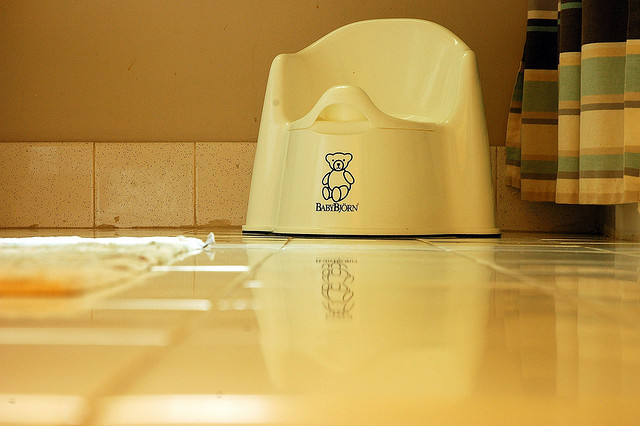
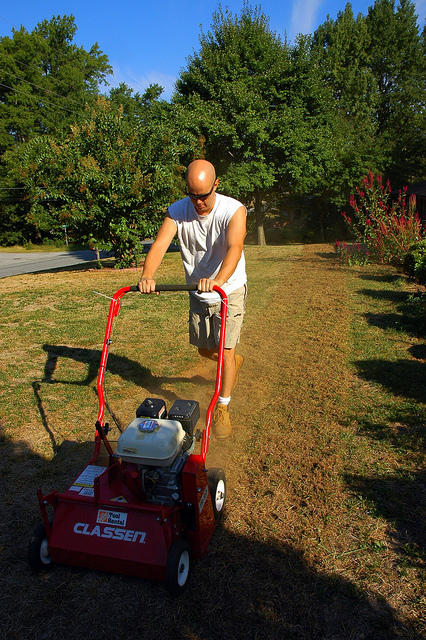



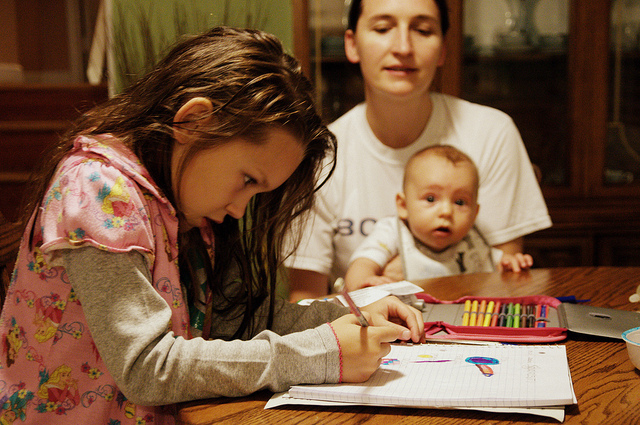


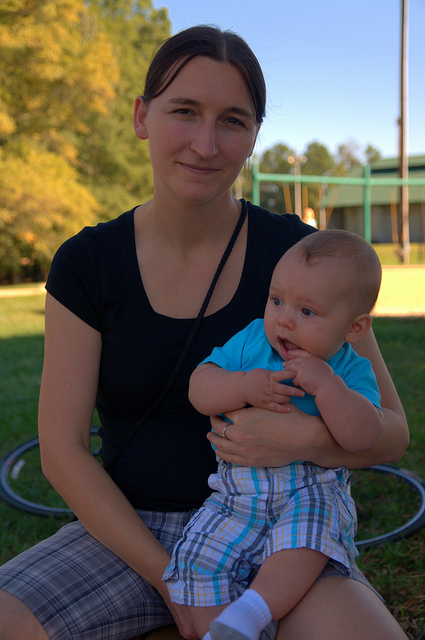
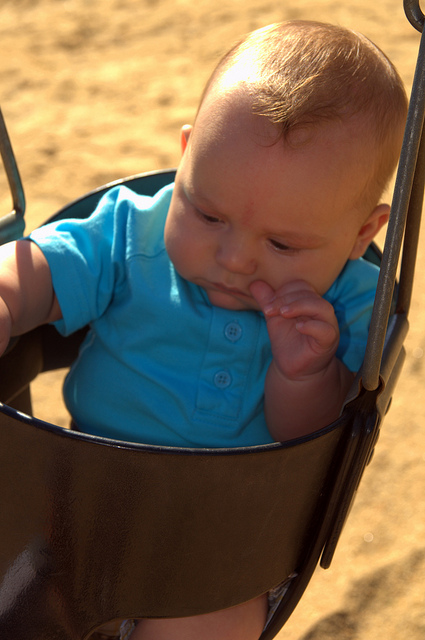

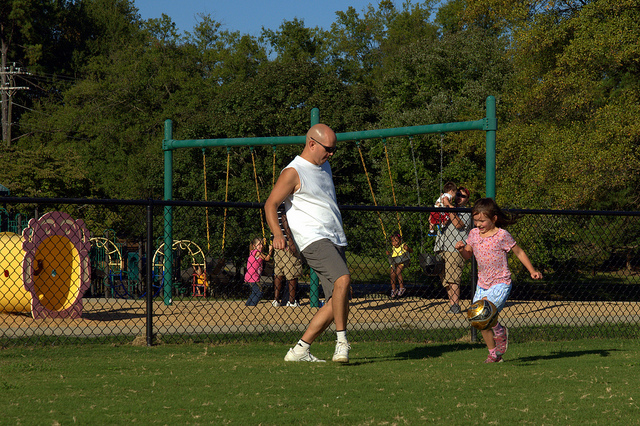
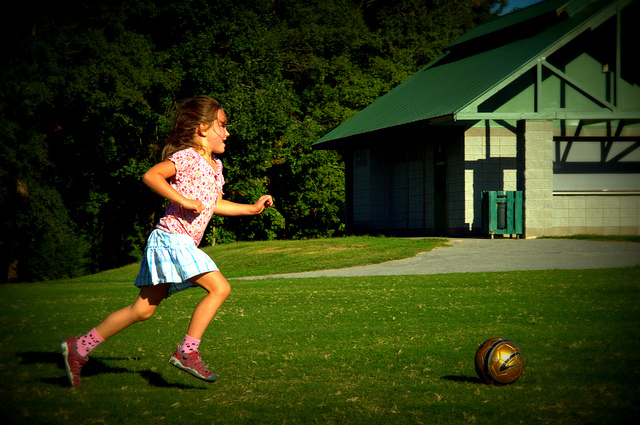
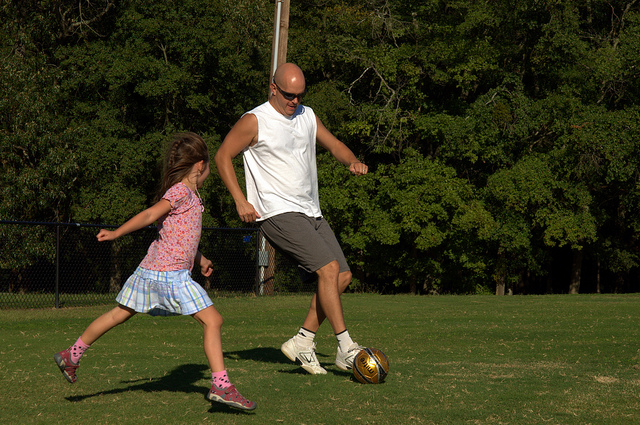
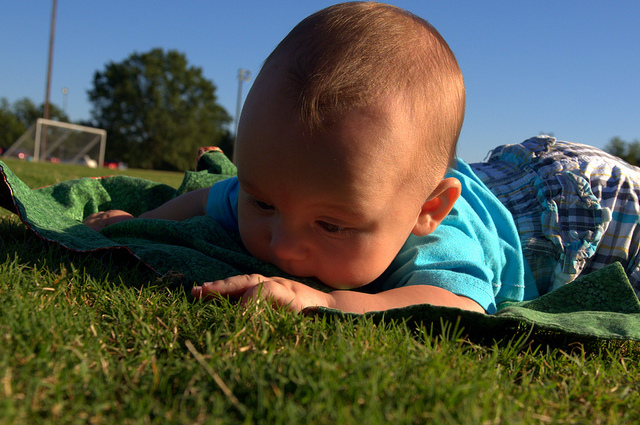

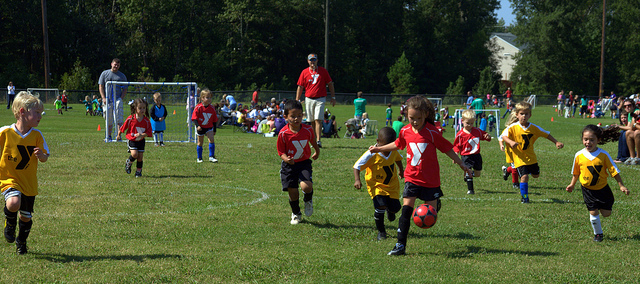
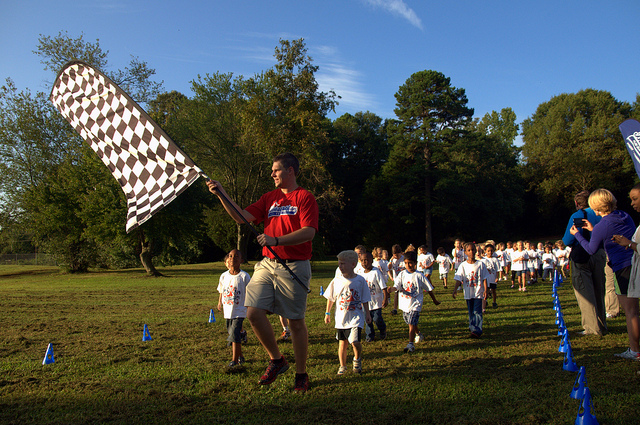
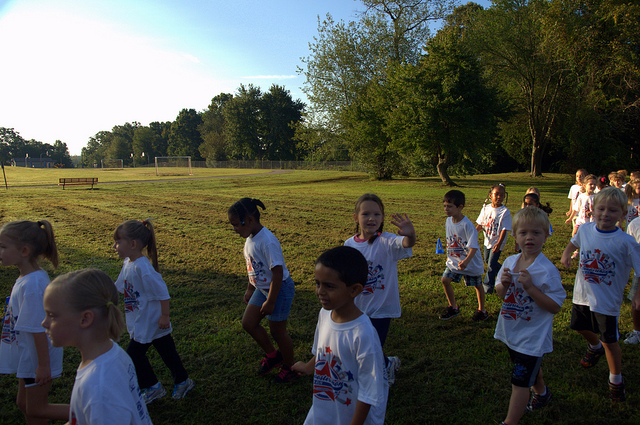
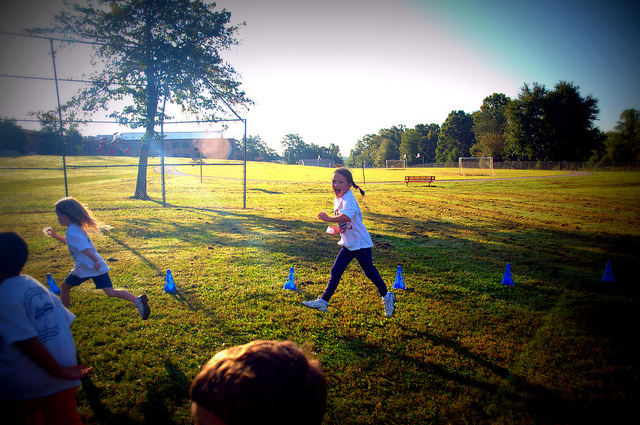
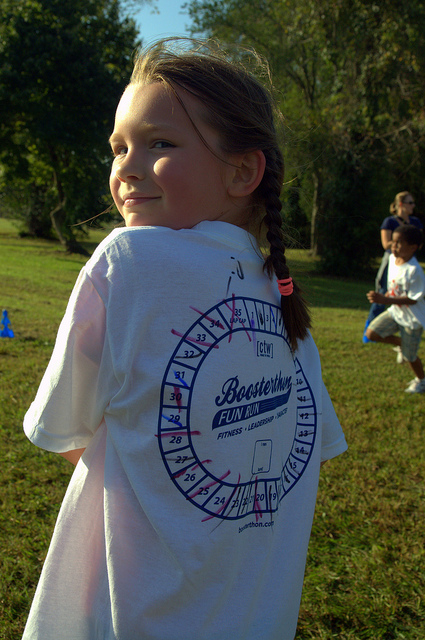
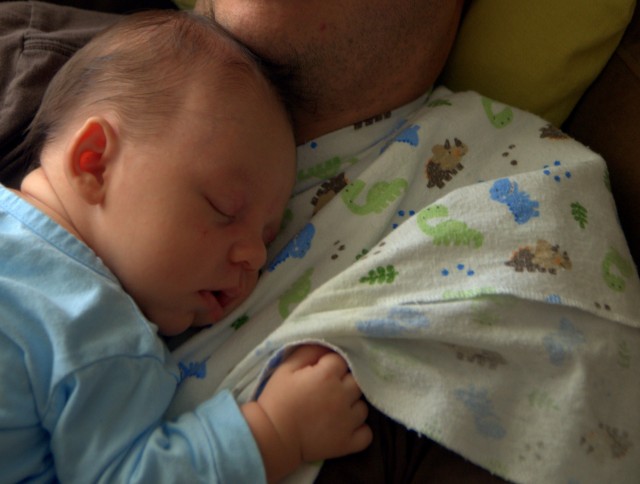

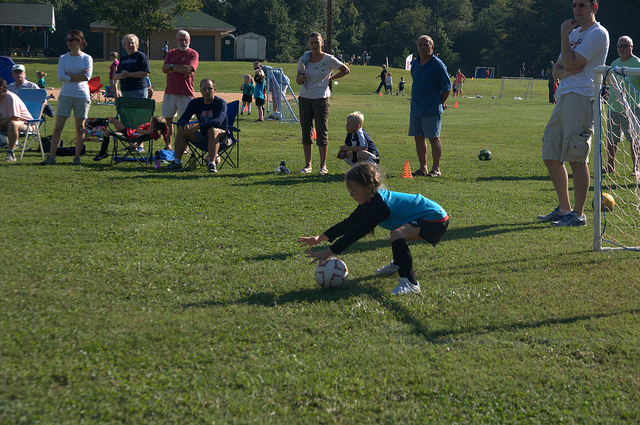
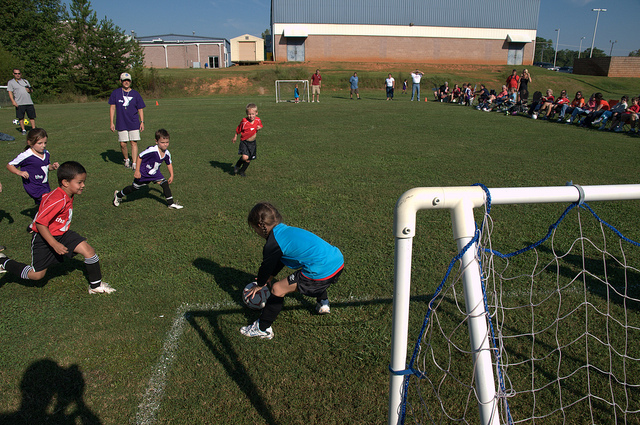
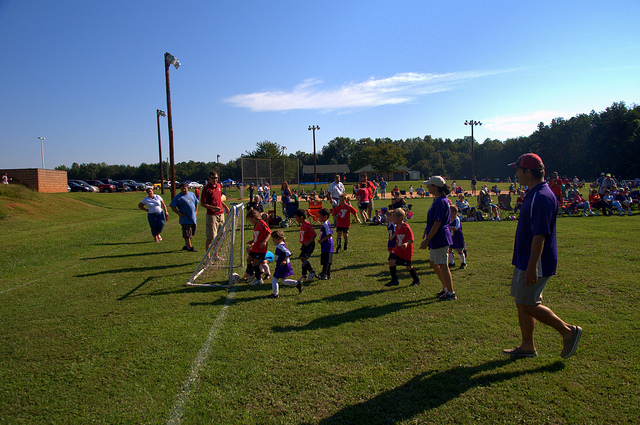

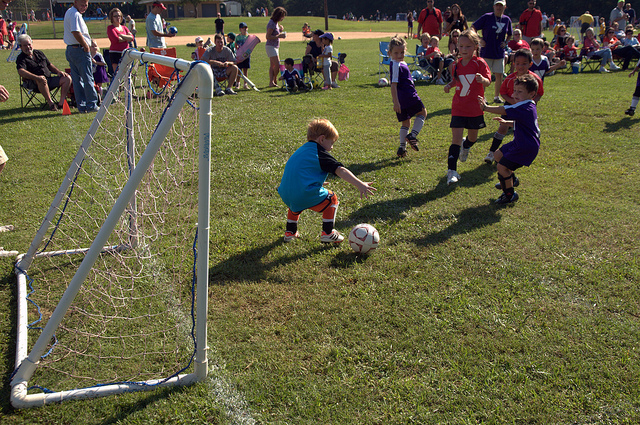
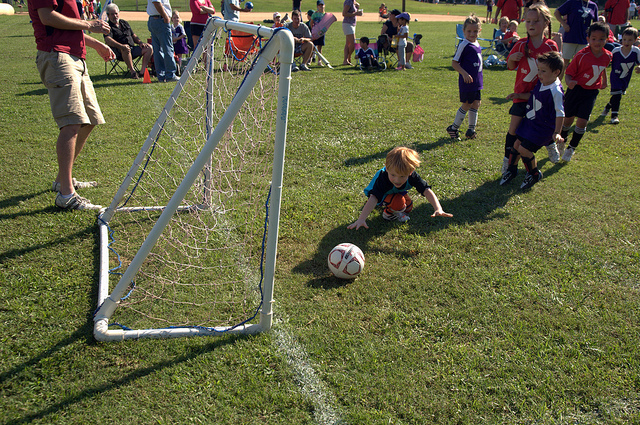
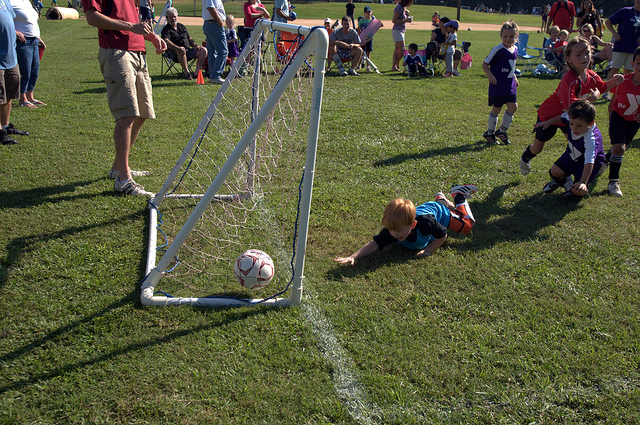
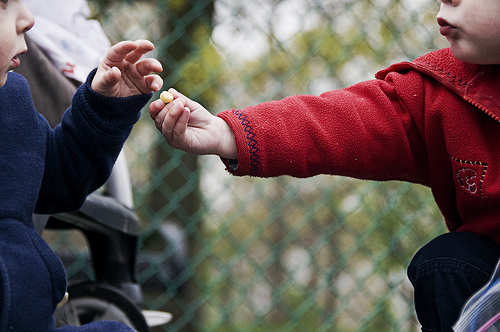
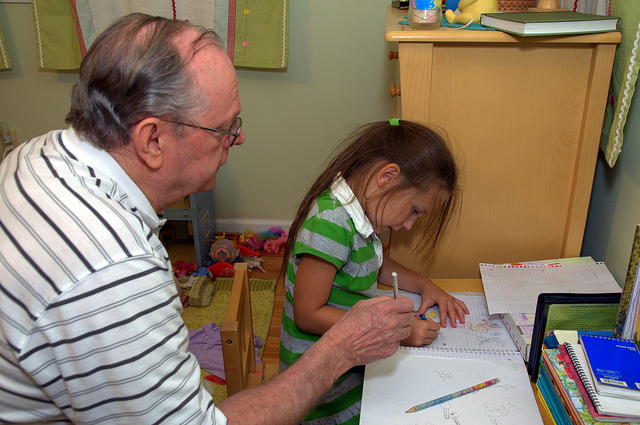
 Every year, as we begin a unit on the Gary Paulsen novel Nightjohn, I read Patricia Polacco’s Thank You, Mr. Falker. The story of a young dyslexic girl who was suffering the taunts of peers and the seeming neglect of teachers, the book emphasizes the life-changing nature of literacy. Trisha, the protagonist, spends the first four grades of school hiding her inability to read, feeling dumb for not being able to keep up with peers, and taking solace in her one skill, her exceptional artistic ability. It’s such a touching story that even a room of rowdy eighth-graders ends up sitting in silence, visibly moved. Every now and then, a girl — always a girl, for a boy will never show such a “vulnerability” — sniffles in the back or wipes her eye occasionally as the story nears its conclusion.
Every year, as we begin a unit on the Gary Paulsen novel Nightjohn, I read Patricia Polacco’s Thank You, Mr. Falker. The story of a young dyslexic girl who was suffering the taunts of peers and the seeming neglect of teachers, the book emphasizes the life-changing nature of literacy. Trisha, the protagonist, spends the first four grades of school hiding her inability to read, feeling dumb for not being able to keep up with peers, and taking solace in her one skill, her exceptional artistic ability. It’s such a touching story that even a room of rowdy eighth-graders ends up sitting in silence, visibly moved. Every now and then, a girl — always a girl, for a boy will never show such a “vulnerability” — sniffles in the back or wipes her eye occasionally as the story nears its conclusion.
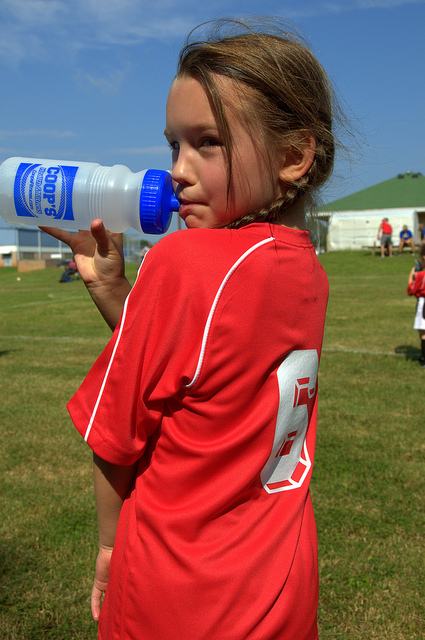
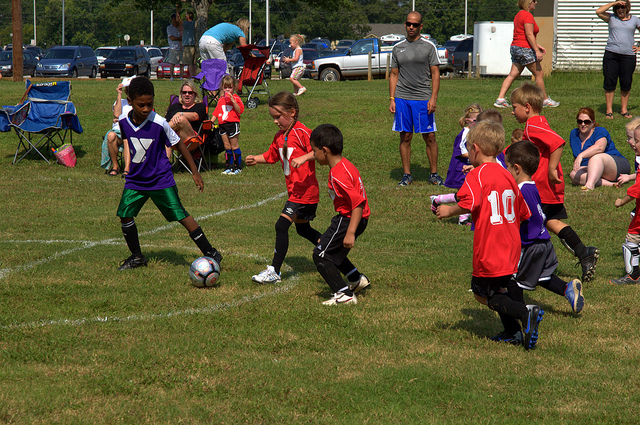
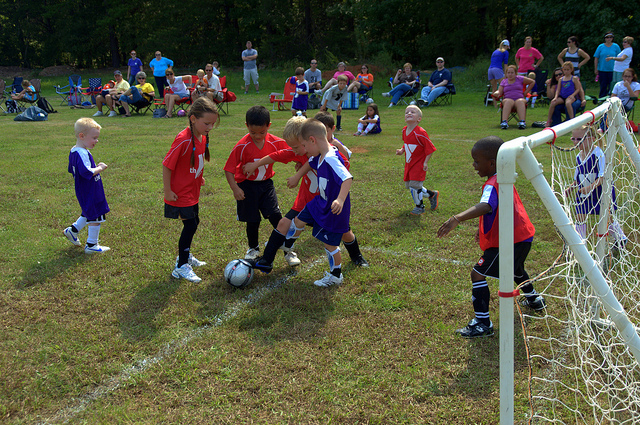
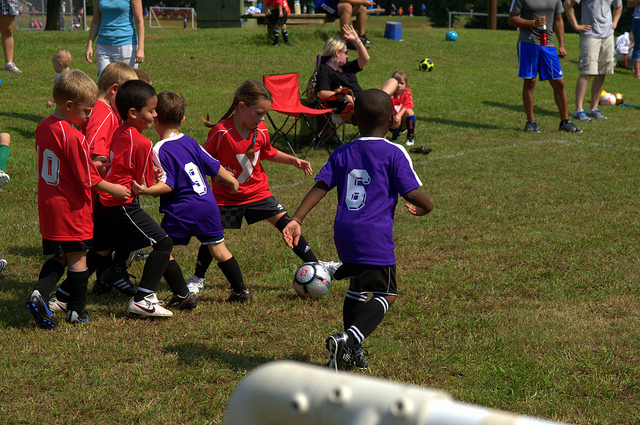
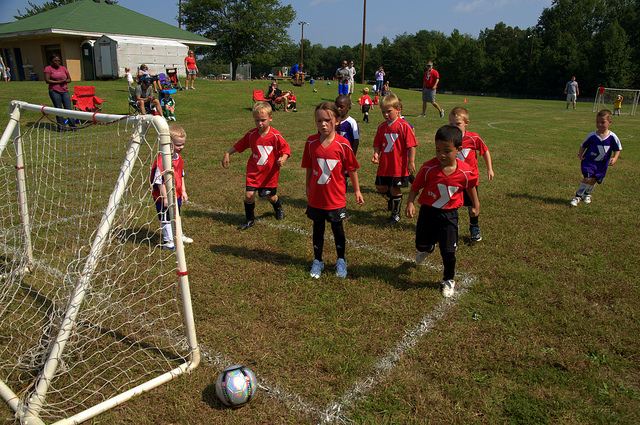
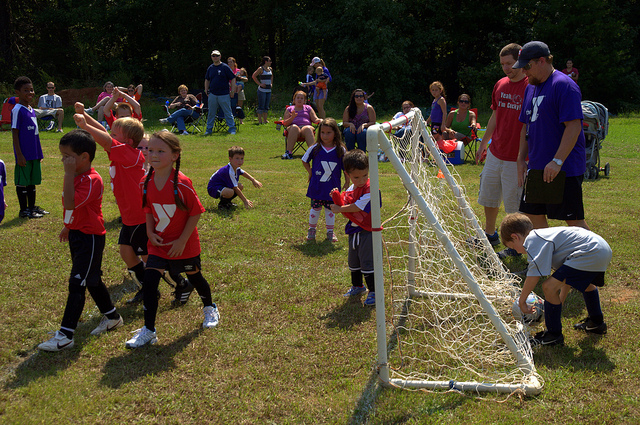



 These deficiencies are as clear in early life as reading problems. In fact, they’re more clearly evident. What are the current options in such situations? There are few, if any. The classroom teacher is responsible for the academic instruction of thirty young children; she has little to no time to instruct little De’Andre or Clearance in the basic skills they seem so clearly to lack. So they get called down, sent to time out, removed from activities, and generally shunned. Instead of learning these skills, they become resentful of those who have the skills and meet with success in school. Indeed, they don’t even recognize that there are different skills successful students are using. “Those kids are just kiss-ups” is the common response.
These deficiencies are as clear in early life as reading problems. In fact, they’re more clearly evident. What are the current options in such situations? There are few, if any. The classroom teacher is responsible for the academic instruction of thirty young children; she has little to no time to instruct little De’Andre or Clearance in the basic skills they seem so clearly to lack. So they get called down, sent to time out, removed from activities, and generally shunned. Instead of learning these skills, they become resentful of those who have the skills and meet with success in school. Indeed, they don’t even recognize that there are different skills successful students are using. “Those kids are just kiss-ups” is the common response. What do we do with this students are they grow older and more intractable, more incorrigible? We do the logical thing: we suspend them. Talk back to the teacher? Get three days out of school. Fight with a student? Get five days out of school. Initiate a fight that is particularly brutal? Get ten days out of school. And this helps these students how? Giving students who don’t want to be in school because they’ve only met with failure in school a chance to get out of school advances their education how?
What do we do with this students are they grow older and more intractable, more incorrigible? We do the logical thing: we suspend them. Talk back to the teacher? Get three days out of school. Fight with a student? Get five days out of school. Initiate a fight that is particularly brutal? Get ten days out of school. And this helps these students how? Giving students who don’t want to be in school because they’ve only met with failure in school a chance to get out of school advances their education how?
